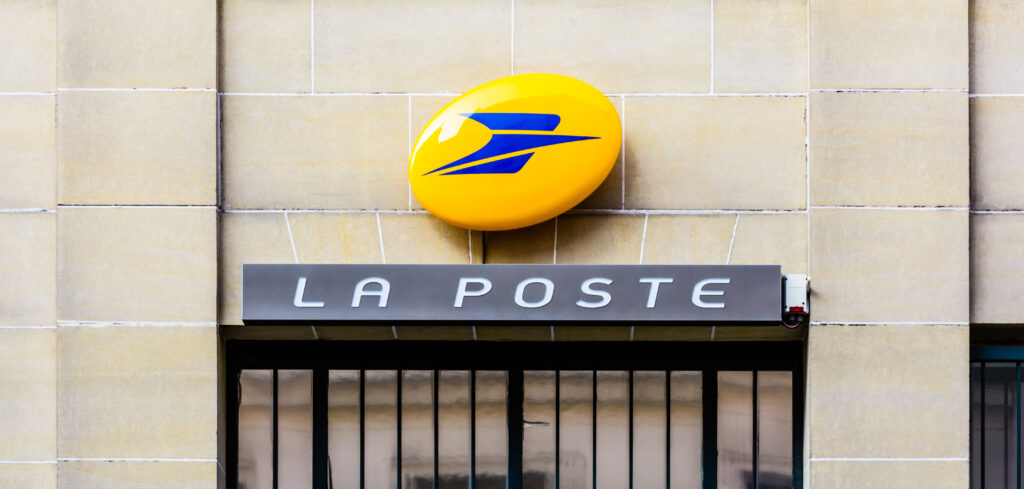La Poste Groupe has committed to working alongside cities in France and Europe to accelerate the decarbonization of deliveries and will invest €500m (US$524m) in its urban logistics hubs and €200m (US$209m) in a network of logistics locations in city centers.
The group is working with the Banque des Territoires to create an investment fund of €500m (US$524m) dedicated to urban logistics real-estate projects. The fund will be 40% held by La Poste and 40% by the Banque des Territoires. To strengthen its urban logistics real-estate portfolio, the company will develop almost 50 new locations by 2026, representing almost 300,000m2 of new space. It will invest €200m (US$209m) by 2026 in renovating its existing real-estate assets or acquiring new premises. The remaining 20% will be held by a third investor, which is currently being selected. These investments are being made throughout France and will cover all types of logistics sites, including 5,000m2 urban logistics hubs (HLU), urban distribution centers (CDU) between 500m2 and 5,000m2 on the edge of LEZs, and urban logistics areas (ELU under 500m2 in city centers). These sites will come into operation over the next three years.
The urban logistics agreements will incorporate the need to implant logistics functions in the city and dedicate space to the necessary infrastructure, including logistics services, in reviews of territorial cohesion schemes, in local urban plans and urban development operations; developing a plan for logistics facilities based on an efficient network; and using the three dedicated site formats found in urban logistics (urban logistics hubs, shared facilities and urban logistics spaces).
Alongside this, La Poste Groupe will accelerate its efforts to decarbonize the last mile, first by increasing its fleet of green vehicles and second by supporting its delivery subcontractors in the use of decarbonized vehicles. This commitment is intended to address road traffic and air quality issues as cities face an increase in the flow of incoming and outgoing goods. La Poste Groupe will ensure 100% decarbonized deliveries (zero and low emissions) in 350 cities across Europe, including the 22 French metropolitan areas, by 2025. According to the company, 11 of these areas will have adopted a partnership agreement with La Poste Groupe by the end of 2022. The metropolitan areas concerned are Toulouse, Bordeaux, Lyon, Grand Paris, Montpellier, Brest, Clermont-Ferrand, Le Havre, Grenoble, Aix-Marseille and the city of Lille.
Speeding up the deployment of a clean vehicle fleet for Colissimo will represent an investment of more than €200m (US$209m) by 2025. La Poste has set itself a target in France of purchasing 8,000 additional electric light commercial vehicles and using at least 1,000 cargo bikes by 2025 to supplement the current fleet of 37,000 low-emission vehicles. In addition, La Poste is supporting its partner service providers and subcontractors in converting their vehicle fleets, for example by requiring decarbonized means of transportation in its specifications, entering into longer contracts to secure and encourage investments, and pointing partners toward conversion solutions (including working with leasing firms such as Movivolt and providing access to manufacturers).
Additionally, the agreements will plan for the deployment of a recharging and fueling network that will map requirements for all kinds of vehicles and engines (electric, bio-NGV (biomethane) and hydrogen). They will also update the location plan for delivery areas and encourage the pooling of incoming goods and shared distribution. This is intended to be carried out using public procurement for the movement of goods for public-sector players, and by supporting the development of shared facilities for private-sector operations, particularly tradespeople and shopkeepers.
Finally, the agreements will work to facilitate developments that help to reduce emissions. To ensure that deliveries are made successfully on the first attempt, the partners will support the completion of an assessment of areas where home delivery fails, to improve address information and access to buildings and install new collection infrastructure (mailboxes, concierge services, pick-up and drop-off points, etc.)


